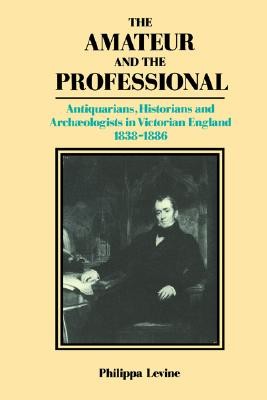| The Amateur and the Professional: Antiquarians, Historians and Archaeologists in Victorian England 1838-1886 Revised Edition Contributor(s): Levine, P. J. a. (Author) |
|
 |
ISBN: 0521530504 ISBN-13: 9780521530507 Publisher: Cambridge University Press OUR PRICE: $48.44 Product Type: Paperback Published: February 2003 Annotation: This book highlights the growing divide in nineteenth-century intellectual circles between amateur and professional interest, and explores the institutional means whereby professional ascendancy was achieved in the broad field of studies of the past. It is concerned with how antiquarian ???gentlemen of leisure???, pursuing their interests through local archaeological societies, were, by the end of the century, relegated to the sidelines of the now university-based discipline of history. At the same time it explores the theological as well as technical barriers which arrested the development of archaeology in this period. This is a notable contribution to the intellectual history of Victorian England, attending not simply to the ideas perpetrated by these communities of scholarship but to their social status, relating such social consideration to a more traditional intellectual history to create a new social history of ideas. |
| Additional Information |
| BISAC Categories: - History | Western Europe - General - History | Europe - Great Britain - General |
| Dewey: 942.072 |
| Series: Antiquarians, Historians and Archaeologists in Victorian Eng |
| Physical Information: 0.54" H x 6.1" W x 9" (0.74 lbs) 224 pages |
| Themes: - Cultural Region - British Isles |
| Descriptions, Reviews, Etc. |
| Publisher Description: This book highlights the growing divide in nineteenth-century intellectual circles between amateur and professional interest, and explores the institutional means whereby professional ascendancy was achieved in the broad field of studies of the past. It is concerned with how antiquarian 'gentlemen of leisure', pursuing their interests through local archaeological societies, were, by the end of the century, relegated to the sidelines of the now university-based discipline of history. At the same time it explores the theological as well as technical barriers which arrested the development of archaeology in this period. This is a notable contribution to the intellectual history of Victorian England, attending not simply to the ideas perpetrated by these communities of scholarship but to their social status, relating such social consideration to a more traditional intellectual history to create a new social history of ideas. |